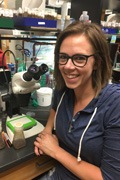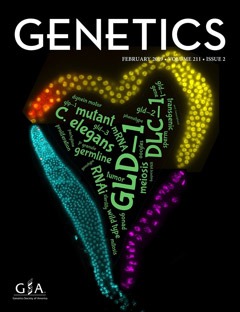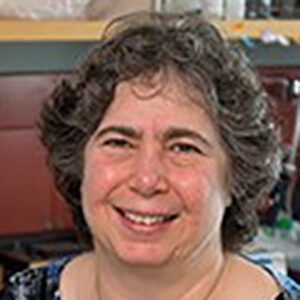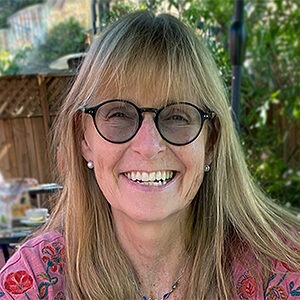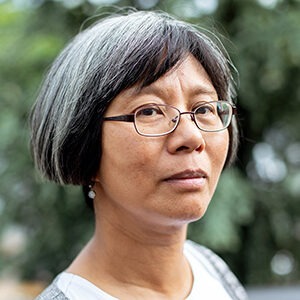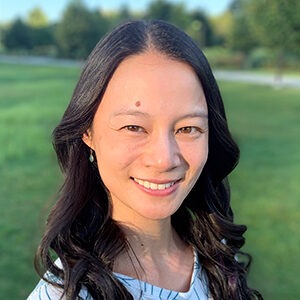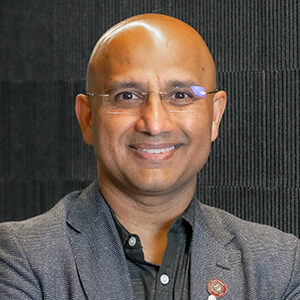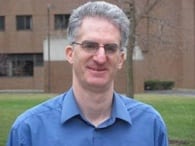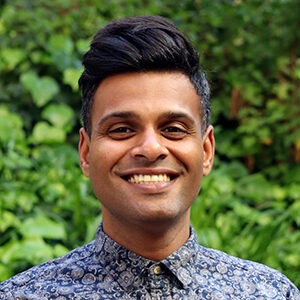2022 Election Candidates and Ballot
To cast your vote, you will need to log in at the link below using your GSA membership email address and password.
- View the Candidates’ statements
- Click Access Ballot below
- Click Login in the upper right corner to log into your account
- Click on More under the heading “2022 Board Election”
- Click Apply
- Vote
- Click Mark as Complete
You will receive an email confirming your ballot has been submitted (please check the spam folder). If you have technical difficulties, email society@genetics-gsa.org.
Deadline to vote: November 21, 2022, 11:59 p.m. EST.
Candidate Statements and Biographical Information
Read each candidate’s statement and biographical information at the links below. Return to this list using the “Return to Top” links.
Directors
Vote for one in each section
Director 1
Director 2
Director 3
Helen McNeill
Larry J. Shapiro and Carol-Ann Uetake-Shapiro Professor, Washington University School of Medicine in St. Louis
Candidacy Statement
I am honored to run for the office of Vice President of the Genetics Society of America. My PhD at Stanford investigated how cells interact, using mammalian tissue cells. I loved the questions we asked and the rapid approaches we used to explore the biology of cellular interactions. However, I felt that to deeply understand underlying mechanisms required genetic approaches. Therefore, I did my postdoctoral training in Drosophila genetics and became enamored of the wide range of genetic approaches available to answer an astounding variety of biological questions. My lab now uses both Drosophila and mouse genetic models to explore development and disease.
The importance of genetics in bench research and in the clinic is ever-increasing. This is an exciting time for science, and for genetics in particular, and the GSA has an important role to play in supporting education, community and research. The GSA goal of supporting scientists and their education through conferences and publishing is critical. I am committed to mentoring scientists at all levels and to supporting a diverse community at all levels. I have been involved in graduate education, postdoc support, and junior faculty mentoring both at the University of Toronto and at Washington University in St. Louis. As a postdoc I juggled raising a young son and learning a new field, and I realize how important it is to provide support for young scientists struggling with career and family responsibilities. The GSA goal of communicating scientific advances to the public is also essential. It is important to raise societal awareness of the challenges of conducting truly rigorous science—and to increase public understanding of the amazing breakthroughs our community makes, highlighting how important it is to invest in science.
Education
PhD in Molecular and Cellular Physiology (1993) – Stanford University, Stanford, CA, United States
BS in Biology (1985) – Ramapo College of New Jersey, Mahwah, NJ, United States
Research Interests
The overall goal of my research is to understand how tissue growth and tissue organization are coordinately regulated. We use both fly and mouse models to capitalize on each system’s strengths. One major question we ask is how Fat cadherins function in Hippo pathway regulated growth control, planar cell polarity and metabolism. Fat cadherins are enormous cell adhesion molecules that bind via cadherin-cadherin interactions to another large cadherin called Dachsous. We use Drosophila as a genetically tractable organism to investigate the basic and conserved mechanisms of Fat function and the control of Hippo pathway activity. We combine this with biochemical analysis of Fat-cadherins in both Drosophila and tissue culture and explore the relevance of our finding to mammalian health with mouse models of Fat cadherins. More recently we have become fascinated by a poorly understood family of Nuclear Envelope Membrane Proteins (NEMP). By generating and characterizing null alleles in flies, zebrafish, worms and mice we discovered that NEMP supports metazoan fertility. We found that NEMP has a germline-specific function in fertility in flies and mice. Currently we are exploring NEMP function in chromatin organization and nuclear envelope stiffness and are collaborating with physicians to explore how NEMP1 impacts human fertility.
Mariana Wolfner
Distinguished Professor of Arts and Sciences in Molecular Biology & Genetics and Stephen H. Weiss Presidential Fellow, Cornell University
Candidacy Statement
I am honored to be considered for Vice President of the Genetics Society of America. The GSA was the first society I associated with and continues to be the one in which I feel most at home. I’ve always loved the elegance and clarity of genetics, the questions that it answers about heredity and genes, and more broadly about organisms, their development, function, and evolution. The GSA and its journals’ mission to promote genetic research in any organism and by any researcher and to educate current and future researchers and the public about genetics match my own interests and priorities.
My research has focused on the genes and pathways that mediate sexual development and reproduction, primarily in Drosophila. From my undergraduate research on yeast and a very recent mouse-mutant made by a co-mentored student in my lab, I also feel professional kinship with geneticists who study other systems. I teach an upper-level course on genetic methods for dissecting cellular and developmental processes, previously taught developmental genetics, and have participated in local outreach efforts to bring genetics to middle school students.
As important as GSA is to me, I have tried to give back by serving on many of its committees, including its Board (as Board member and as Secretary) and committees including Publications, Nominations/Awards, Conference, and ad hoc committees on GSA’s financing, education, and women in genetics, as well as serving as an Associate Editor at GENETICS. I’ve also been President of the Drosophila Board, which interacts closely with the GSA and considers some of the same general issues (only fly-focused), and lead organizer for an Annual Drosophila Research Conference, where I worked closely with the GSA staff who supported the meeting.
As Vice President, I would work hard to further GSA’s mission of supporting geneticists, genetics research, and genetics education and outreach. My main priorities include continued community building and information dissemination to the research community, efforts to keep the importance of basic genetics research front-and-center to funding agencies and legislators, and responding to financial pressures on society journals. Another is to continue GSA’s efforts to be a central resource for genetics education, mentors, and educators, about principles of genetics as well as how genetics has been used (or misused) in the past and lessons to heed in the future. Another priority is to support and retain the excellent GSA staff who, often unseen, do so much to keep the community connected and vibrant. And it is a priority to do all of these in a way that fosters the inclusiveness of the GSA, welcoming and supporting all members of its diverse community in all ways.
Education
PhD in Biochemistry (1981) – Stanford University, Stanford, CA, United States
BS in Biology and Chemistry (1974) – Cornell University, Ithaca, NY, United States
Research Interests
My lab focuses on two major questions in reproductive developmental biology: (a) the roles of seminal proteins in fertility and (b) the events that transition a mature oocyte to the start of embryogenesis. These fundamental processes are conserved across all animals, including humans. Our discoveries of the nature, functions, and evolution of critical reproductive proteins and processes use the Drosophila model for its speed and technical simplicity, and Aedes mosquitoes because of the applications to control of these disease vectors.
Deborah Andrew
Professor, Johns Hopkins School of Public Health and Johns Hopkins School of Medicine and Associate Director for Faculty Development, Institute for Basic Biomedical Sciences, Johns Hopkins University School of Medicine
Candidacy Statement
I am running to serve as Treasurer of The Genetics Society of America. I grew up in Florida where I received my BS in Limnology (freshwater ecology) at the University of Central Florida. It was at UCF that I discovered my passion for genetics and obtained a Master’s degree working with Dr. David Kuhn on a homeotic gene in Drosophila. I earned a PhD in Molecular Genetics at the University of California, San Diego working on sex determination with the late Dr. Bruce Baker. My post-doctoral training began at the University of Colorado, Boulder and continued at Stanford University under the guidance of Dr. Matthew Scott, where I began my lifelong study of genes controlling the embryonic development of epithelial organs, primarily the Drosophila salivary gland and trachea. I joined the Department of Cell Biology at the Johns Hopkins University School of Medicine as an Assistant Professor in 1993, where I have risen through the ranks to Associate Professor (1999) and Full Professor (2004). Also, I currently hold faculty positions in the Johns Hopkins Malaria Research Institute and the Department of Molecular Microbiology and Immunology in the Johns Hopkins University School of Public Health. I am Associate Director for Faculty Development in the Institute for Basic Biological Sciences at Johns Hopkins (2018 – present).
I am running for the office of Treasurer because I want to give back to the organization that I believe is the strongest supporter of the field of genetics in the world – the Genetics Society of America. I think my experience serving as Treasurer (2013 – 2016) and then President (2018) of the Drosophila Board, along with my experience working with the GSA to help organize the Annual Drosophila Research Conference (2010) and serving as an Associate Editor of GENETICS (since 2019), will serve me well in this position. I promise to give this position my full attention as we manage transitions in publishing, continue to support meetings of model genetic organisms, meet the increased challenges of more limited funding, and increase diversity, equity, and inclusion in the genetics community.
Education
PhD in Biology (1987) – University of California, San Diego, San Diego, CA, United States
MS in Biology (1981) – University of Central Florida, Orlando, FL, United States
BS in Limnology (1979) – University of Central Florida, Orlando, FL, United States
Research Interests
My lab focuses on the specification, morphogenesis and cell type specialization of two epithelial tubular organs, the Drosophila salivary glands (SG) and trachea. We have made a number of key findings in this arena. (1) We have identified the genetic factors required to specify SG cell fates in the developing Drosophila embryo. (2) We have characterized the pathways that drive cell shape changes and cell rearrangement during epithelial tube formation in both the Drosophila SG and trachea. (3) We have shown that the CrebA transcription factor and its mammalian orthologues (the Creb3L family) coordinately upregulate secretory capacity in professional secretory cells. (4) We have demonstrated that the Fkh transcription factor (single FoxA family member in Drosophila) works with a bHLH transcription factor to control both SG cell survival and the expression of tissue-specific cargo genes s in the SG. (5) We have uncovered a role for the bHLH-PAS transcription factor Trh as a master regulator of tracheal gene expression. We have also provided a full morphological characterization of the SGs in the mosquito species that is a major vector for human malaria and have developed gene editing strategies to disrupt this organ to limit disease transmission. We have resolved a long-standing controversy about the molecular pathways controlling migration of Drosophila germ cells to the gonad. Finally, we have recently identified and characterized a nuclear factor that increases translational capacity in the Drosophila SG and in other tissues with high demands for protein synthesis. We continue to characterize the molecular and cellular events underlying tissue morphogenesis and physiological specialization through genetics, genomics and advanced imaging.
Tin Tin Su
Professor, University of Colorado, Boulder and Program Leader, University of Colorado Cancer Center
Candidacy Statement
My reason for wanting to be on the GSA Board is to repay for all the support I have received throughout my career. I had not seen a fruit fly under the microscope until I began my post-doc with Pat O’Farrell at University of California, San Francisco I grew up in Burma, finished high school in India, and came to the US to start college as a Chemistry major. As a graduate student at Carnegie Mellon University, I spent hours in the cold room purifying enzymes for a biophysics project on DNA topology. Therefore, seeing my first Drosophila was an intimidating experience—so beautiful and yet so many moving parts! My experience at the first GSA meeting I attended, an Annual Drosophila Research Conference (ADRC), was equally intimidating. But I kept going back because I increasingly felt that I belonged. I felt supported and heard. I felt my students and postdocs could get the support they needed. I know now that GSA does much more than run conferences. I am grateful for its efforts to give geneticists a voice, to keep lines of communication open through journals in addition to conferences, and to support geneticists of all backgrounds, persuasions and career stages. At the University of Colorado, I have been teaching undergrads since 1999, have published research papers on pedagogy, and have served as the departmental Director of Graduate Student Affairs. In the Drosophila community, I have co-organized ADRC workshops, served on the Larry Sandler award committee, chaired the organization committee for the 2018 ADRC, and served as the President of the Drosophila Board. I advocate model organism research during NIH grant reviews; I am currently on my fifth stint as study session chair. I am active in mentoring and diversity and inclusion efforts at my institution as well as in neighboring states to make laboratory research accessible to non-traditional students. I hope to bring my abilities guided by experience to the GSA Treasurer position.
Education
PhD in Biochemistry (1991) – Carnegie Mellon University, Pittsburgh, PA, United States
BA in Biochemistry (1984) – Mount Holyoke College, South Hadley, MA, United States
Research Interests
I have led an independent research program in radiation biology of Drosophila and human cancer models since 1998. Areas of research in my lab include DNA repair, apoptosis, signaling by apoptotic cells, and cell fate plasticity during regeneration after radiation damage. Basic research in my lab has been funded by federal and private grants from sources that include the NIH, the American Cancer Society, and the Department of Defense. Current funding for the lab is through an NIH R35 MIRA grant on which I am the sole PI.
Since 2005, I have been leveraging my basic research findings into discovery and development of new anti-cancer drugs. These efforts, funded by two R21 grants from the NIH and two grants from the Department of Defense cancer research programs generated three issued patents and one start-up company, SuviCa, Inc. SuviCa is a women-owned business. I recruited all key personnel to SuviCa including a world-class CEO (co-founder and former COO of Pharmion) and serve as the Chief Scientific Officer. SuviCa has successfully completed two phase I and two phase II NCI SBIR contracts.
Teresa Lee
Assistant Professor, University of Massachusetts, Lowell
Candidacy Statement
It is an honor to be nominated as a candidate for the GSA Board of Directors. My first scientific meeting was a GSA C. elegans conference – although I didn’t know it at the time, I had found my community: one that values fundamental research in model organisms and promotes the inclusion of all researchers. This might be true of every era, but the rapid development of new genomic and gene editing technologies makes it a particularly exciting time to be a geneticist. I remember being blown away by TAGC 2016, both by the breadth of research and the potential for interdisciplinary connections. That, along with the heartfelt enthusiasm of each organismal community, renewed my desire to contribute to GSA. I joined the Education Committee, just in time to help plan TAGC 2020. I am currently serving as Chair of the Education Committee and as a member of the DeLill Nasser Selection Committee.
As a life-long Tar Heel, I attended University of North Carolina, Chapel Hill for college, where I was introduced to my two scientific loves: germline chromosome biology and C. elegans genetics. During my undergrad, I worked with Shawn Ahmed on how telomeres maintain genome integrity. I then moved to University of California, Berkeley for my PhD, where I worked with Barbara Meyer on how meiotic chromosome structure regulates double-strand break repair. As an NIH IRACDA postdoc at Emory University with David Katz, I found that heterochromatin enables the acquisition of longevity and mediates its transgenerational inheritance. This discovery allowed us to develop a model for transgenerational inheritance, which my lab uses to probe the mechanistic outcomes of inappropriate chromatin landscapes. Overall, we are interested in how chromatin landscapes mediate the epigenetic inheritance of complex traits, employing a combination of molecular genetics, high-resolution microscopy, and genomics. Currently, we’re seeing how the inappropriate inheritance of repressive histone modifications affects lifespan, health, and embryonic development.
I am excited to work with the GSA because it values excellent science and the people who do it. Our country has a tangled history with the use of genetics as tool of exclusion, whether by race, sex, or disability status. I’ve been impressed with GSA’s commitment to address this past, in part by creating a space that genuinely welcomes those that have historically been excluded from becoming biologists. Cultivating inclusive spaces is the first step – the next is to ensure that scientists, especially those from minoritized populations, have the support they need to flourish. As a Board member, my priority would be to further deepen GSA’s support for minoritized populations, and therefore generate resources that benefit all researchers. This could include extending professional development efforts for trainees (like the Presidential Members program) or providing strategies for members interested in DEI initiatives (via plenary DEI sessions at conferences). Despite being a junior PI, I have led institutional initiatives that promote supportive mentoring environments for trainees, both as a PhD student and a postdoc. At UMass Lowell, I work closely with our program for first-gen college students, in part to develop course-based undergraduate research experiences that can help make research truly equitable for all students. I look forward to applying this experience towards GSA’s existing programs and working with the Board to build new ones. Thank you for your consideration.
Education
PhD in Molecular and Cell Biology (2014) – University of California, Berkeley, Berkeley, CA, United States
BS in Biology (2007) – University of North Carolina, Chapel Hill, Chapel Hill, NC, United States
Research Interests
My research group studies how chromatin landscapes mediate the epigenetic inheritance of complex traits. Previously, we developed a transgenerational C. elegans model where repressive heterochromatin gradually accumulates over many generations, eventually allowing populations to acquire longevity. Currently, we use this system to investigate how the inappropriate inheritance of chromatin affects chromosome structure, lifespan, health, and embryonic development.
Jagan Srinivasan
Associate Professor, Worcester Polytechnic Institute
Candidacy Statement
I am honored and excited to be a nominee to the Board of Directors of the Genetics Society of America. I have been a worm scientist for as long as I can remember! For the past 25 years I have worked on different species of nematodes, including C. elegans, earning me the dubious title of ‘Zooman.’ My academic journey has taken me across three continents (Asia, Europe, and America). My experience in different education systems taught me an array of scientific education techniques that I integrate into my own teaching style to build the next generation of scientists. I currently work at an institution where research and teaching are equally valued, allowing me to employ effective teaching strategies that bring discoveries from our research to the classroom. Our lab’s research interests span sensory biology, genetics, genomics, neuroscience, chemical biology, and evolutionary biology. This breadth enables me to develop and disseminate scientific concepts that are ‘hot off the lab bench’. My nomadic educational experience will help bring a unique perspective to policies to disseminate science internationally, aligning with GSA’s mission to advocate science education across the globe.
I value the role that societies, like the GSA, play in dissemination of scientific facts. This mission strongly aligns my own vision of how science should be shared with the public because I believe that scientific knowledge enables people to make better decisions about their health and lives. I live this value by sharing my research with both students and the general public; science outreach and education are essential for communicating the impact of science on society. As a scientist, I know that basic science lays the foundation for biomedical advances. Organizations like GSA provide a strong voice to the lawmakers to increase funding for basic research. If elected to the Board of Directors, I would like to advocate for increased basic research funding.
GSA champions diversity within the scientific community and society. I believe researchers should not be disadvantaged because of their gender, country of work, career stage, ethnicity, or disability. As a member of the governing board, I will commit to redressing the underrepresentation of minorities in STEM-related disciplines through GSA’s initiatives.
I actively encourage students to be involved in career development opportunities. GSA has been at the forefront of this area. The early career Peer Review Training program is an excellent initiative that helps students in their future careers by enabling them to critically evaluate research. If elected as a board member, I hope to promote additional GSA activities that emphasize the role and impact of peer review.
GSA has been an integral part of my career through their conferences and publications. As an engaged teacher, worm researcher, and a potential member of the board, I hope to continue contributing to GSA’s great legacy of promoting science, technology, and innovation.
Education
PhD in Genetics (2003) – Max Planck Institute for Developmental Biology, Munich, Germany
MS in Marine Biotechnology (1995) – Goa University, Panaji, India
BS in Biological Sciences (1993) – University of Chennai, Chennai, India
Research Interests
Focusing on interpreting olfactory dysfunction in neurological disorders, we aim to understand how olfaction is coded in the brain. The nematode, C. elegans serves as an ideal model system as it has a relatively simple nervous system with a fully-mapped connectome, and affords the use of many imaging techniques. In conjunction with its social-behavioral repertoire, we can understand how the nervous system detects, encodes, and transmits sensory information underlying social behaviors: such as finding a mate, avoiding unfavorable conditions or parenting and bonding. Our systems neuroscience lab is working towards answering these questions by observing the neuronal, genetic, and molecular mechanisms underlying chemically-mediated social behaviors in the nematode.More specifically, we seek to understand how neurons interpret social signals, both individually and as members of circuits, producing specific behaviors in C. elegans. To achieve this, we utilize a class of small social molecules, ascarosides, produced by the animals. These molecules communicate information about the environment between conspecifics and also are co-opted within a worm’s nervous system. By identifying the genes and signaling pathways underlying observed social behaviors, we can elucidate the molecular mechanisms underpinnings of this communication. Given the degree of neuronal pathway conservation between C. elegans and vertebrates, understanding how social recognition occurs in the worm nervous system can provide insights into how vertebrate neural systems encode social information.
RETURN TO TOP »
Daniel Barbash
Professor, Cornell University
Candidacy Statement
I am honored to be running for election to the Board of Directors of the GSA to represent the area of Population and Evolutionary Genetics. I have been a member of the GSA since I was a graduate student, and I have served as an Associate Editor of GENETICS since 2013. I have been a faculty member in the Department of Molecular Biology and Genetics at Cornell University since 2004, where I have taught introductory genetics to undergraduates, served as principal investigator on an NIH T32 training grant in genetics and development, and currently serve as Chair of my department. My research interests include evolutionary genomics, molecular evolution, speciation, and the evolution of transposable elements.
I am proud to serve on the editorial board of GENETICS, which along with G3: Genes|Genomes|Genetics remains a premier journal for the population and evolutionary genetics community. I especially enjoy working with many excellent colleagues who help to make GENETICS a well-recognized model of rigorous and fair peer-review overseen entirely by active researchers. If elected to the Board, I look forward to working with our colleagues to maintain the prominence of the GSA and strengthen its ability to be a leader in supporting the training and development of junior scientists, publishing successful and well-respected journals, and having a leadership voice in advocating for genetics and biological research at the national and international levels. The GSA has shown great foresight in adapting to the changing needs of our community over the last decades, including launching the G3 journal, prioritizing new career development initiatives, increasing policy-related activities, and rethinking how to successfully plan and organize conferences. I will strive to contribute to these efforts and to represent the interests of the population and evolutionary genetics communities in the GSA.
Education
PhD in Genetics (1995) – University of California, Berkeley, Berkeley, CA, United States
BS in Biology (1989) – Massachusetts Institute of Technology, Cambridge, MA, United States
Research Interests
We use Drosophila to investigate the genetic barriers that evolve between populations and species to cause reproductive isolation. These barriers include preferences of populations to mate among themselves and to avoid mating with other populations, and sterility and lethality phenotypes that evolve in interspecific hybrids. A major open question in these areas is to identify the evolutionary forces within species that drive these reproductive barriers.
Arun Sethuraman
Assistant Professor, San Diego State University
Candidacy Statement
I am honored to be nominated to the GSA Board of Directors. Having served as an Associate Editor at G3: Genes|Genomes|Genetics and on the GSA’s conferences committee for the last few years, I look forward to continuing to serve the GSA membership in an active Directorial role. As an early-career researcher at a Minority Serving Institution, with a lab predominantly comprised of undergraduate and master’s students, I see this as an invaluable opportunity for me to be the voice of a largely underrepresented group of researchers in the GSA. I am thrilled to have this opportunity to join a dedicated and diverse team of geneticists who are actively working to change the face and representation of our field.
My commitment to serving on the Board thus comes with a push to address four key issues that are close to my heart – (1) developing important training resources to actively involve undergraduates in genetics/genomics research as part of GSA’s catalog of activities and conferences, (2) changing how we teach fundamentals of genetics with exclusionary language by organizing a community-wide effort to develop a new teaching paradigm for teaching topics such as transmission, sex determination, polygenic selection, and genome-wide association studies, (3) interfacing with the equity and inclusion and conference committees in continuing to assess the GSA’s membership demographic to build actionable items to increase participation of a diverse audience at all GSA’s conferences, and (4) working with the GENETICS and G3 editorial teams to recruit and train a diverse group of Associate Editors, and actively featuring methods, tutorials, and blurbs of published work on the Genes to Genomes blog, specifically highlighting the work of early-career researchers, graduate and undergraduate students.
Education
PhD in Bioinformatics and Computational Biology (2013) – Iowa State University, Ames, IA, United States
BEng in Computer Science (2007) – Birla Institute of Technology and Science, Pilani, India
Research Interests
I am a theoretical and applied population geneticist who develops new statistical methods, software, and pipelines for estimating evolutionary history from large population genomic data. My lab at San Diego State University is specifically interested in the genomics of structured populations, with ongoing methodological developments to estimate (1) population structure in the presence of missing genomic data, (2) signatures of linked natural selection versus adaptive introgression, (3) archaic introgression, and (4) relatedness in admixed populations. Methods we have recently developed include PPP, InRelate, IMa2p, IMGui, and MULTICLUST.
Shawn Burgess
Head, Developmental Genetics Section, National Human Genome Research Institute and Adjunct Faculty, University of Maryland, College Park
Candidacy Statement
It is an honor to be nominated for a position on the GSA Board of Directors. The GSA provides many valuable, even essential, functions for the research community including providing excellent meeting venues to bring researchers together and advocating strongly for NIH support. I believe the GSA can and should continue to take a leading role in supporting the major model organisms as well as expanding its support to the many new emerging model systems.
For over 30 years I have used genetics as the central tool in my research, first in yeast and now in zebrafish. I still believe genetics remains one of the most powerful tools we have for understanding the function of genes and regulatory regions in the genome. I also recognize how central model organisms are to both basic and biomedical research. We are in an exciting moment where genome sequencing technologies and CRISPR-Cas gene editing are rapidly broadening the number of available model organisms. The potential for these new models is limitless, but we need to discover ways to support these fledgling systems early on so we all benefit from them later.
We are also in a challenging funding environment where the centralized, critical infrastructure for model organism research—the online model organism databases—are having to adapt to processing massive amounts of new data with less resources. I have been on the advisory board for ZFIN and for the Alliance of Genome Resources for many years, and I firmly believe the health of these databases is an essential component to genetics and model organism research. I would like to find ways to help raise the awareness of the fundamental importance of these resources so that we can secure their existence and full, free availability to the entire world for the foreseeable future.
I also believe we must continue to push back on the idea that many experiments performed in model organisms can readily be replaced with in vitro systems or computational predictions. Inducible stem cells and pathway predictions are truly exciting developments for biomedical research, but testing in the whole animal, with all its wonderful complexity and interdependence, is still the gold standard for understanding gene function. In my opinion, we must vigorously defend this position whenever and wherever we can.
Education
PhD in Biochemistry, Cell, and Molecular Biology (1995) – Johns Hopkins University School of Medicine, Baltimore, MD, United States
BA in Biology and Psychology (1988) – Wesleyan University, Middlebury, CT, United States
Research Interests
For the last decade, the Burgess lab has focused on developing technologies to systematically annotate the functions for all the genes in a vertebrate genome. After completion of the human genome sequence, approximately 70 percent of the protein-coding genes could be assigned a putative function based on at least one identified Pfam domain. However, for the vast majority of these genes, assigned functions are inferred and their true in vivo functions have never been directly tested. Because the genomes of the vertebrate model organisms mouse (Mus musculus) and zebrafish (Danio rerio) have also been sequenced, they offer the opportunity to test the function of every vertebrate gene, and by extension, the function of their human homologs.
Martin Ferris
Associate Professor, University of North Carolina, School of Medicine
Candidacy Statement
I feel very privileged to have been nominated for a position on the Board of Directors for the GSA. Over my 20 year long career, I have studied a wide variety of questions and organisms (from viruses to mice). However, the unifying theme of all my work has always been genetics.
I was a bad undergraduate. I got a C in Genetics (I can show you the transcript). Even still, there was something magical about the maths and puzzles underlying the genetic regulation of traits, and how genetic variants moved within populations. I shaped up and thrived when I discovered evolutionary genetics. I devoured it, and I pursued a graduate career in evolutionary genetics of bacteriophage, where I published my first dissertation chapter in GENETICS. My career evolved as I went from graduate student to postdoc to faculty member. I moved from evolutionary genetics to viral genetics to mammalian (mouse) genetics. Throughout this evolution, those puzzles have kept me fascinated with genetics.
Throughout my career, the GSA has helped me develop an appreciation for the beauty and breadth of approaches that geneticists across systems and questions use. We all speak a common language and all love the underlying puzzles that our favorite genomes encode. When we come together (such as at the TAGC meetings), we really get to grow and celebrate the advances our broad society develops. We see how these advances percolate into other systems and questions, and ultimately enrich our work, field, and society. The Society and its works have been a constant presence and aid in my career. I have been proud and happy to see how the Society has responded to the needs of so many members, and I believe GSA can and will continue to play a critical role in protecting and advancing the science its members produce; in advocacy and outreach to the general public on the importance of genetics to society; and in expanding the community of scientists to whom the society caters, advocates for, and helps to advance and expand their careers and successes.
The GSA has led and been extremely receptive to important actions that have enriched our research enterprise, community, and larger society. These actions range from leading the way in data sharing and open access in society journals, to ensuring that conferences promoted by the society are accessible to members of all ranks, positions, and life stages. Specifically, as a member of a two-faculty family with young children, when GSA committed to family assistance at conferences (when many conferences did not) – I noticed and appreciated.
I believe that GSA can continue making our community and environment a rigorous, open, and welcoming one. In 2018, I served on a GSA working group tasked with identifying how the society could continue to advocate for its members. At the time I was impressed with the dedication and commitment of society leadership, staff, and members to this task (among many others). I know that drive and commitment are still there, and it makes me excited to think of how the Society can continue its mission. Specifically, a central piece of the GSA mission is to welcome members from a broad range of backgrounds and career trajectories. I know I have always felt welcome in academia because I fit a specific mold, but I know there are others (i.e. underrepresented minority groups) who do not feel welcome. There are even more individuals who will end up in careers in genetics who are not aware of the GSA, or the opportunities this society provides to them as they pursue their careers. I believe it is the duty of this society to include, advocate, and welcome these individuals as much as the society has advocated for other members before.
This society has been part of my life and career for almost 20 years. Through it, I have seen my career advance and have connected with wonderful colleagues and collaborators. I have seen so many others do so as well. I greatly appreciate the opportunity to lead in this society. I hope you all see my dedication and passion here. I hope, were I to be elected, I would continue the positive progress I have seen in this society over the years.
Education
PhD in Biology (2008) – University of North Carolina, Chapel Hill, Chapel Hill, NC, United States
BS in Ecology and Evolutionary Biology (2002) – University of Rochester, Rochester, NY, United States
Research Interests
In the Ferris lab, we use genetically diverse mouse strains to better understand the role of genetic variation in immune responses to a variety of insults. We then study these variants mechanistically. We also develop genetic and genomic datasets and resources to better identify genetic features associated with these immunological differences.

